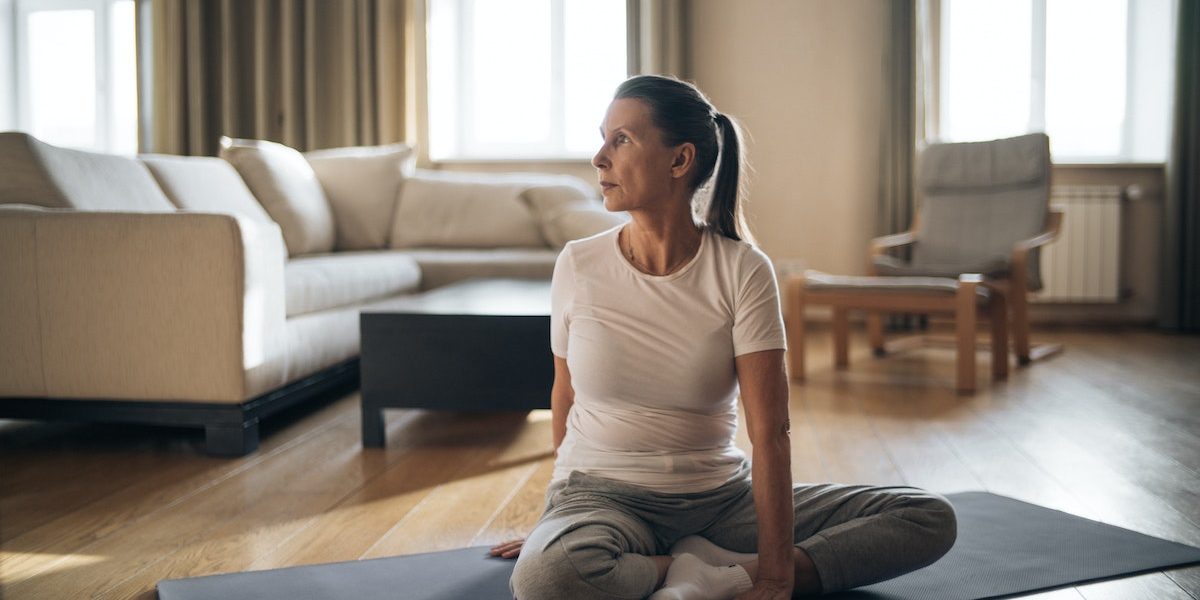In our last blog, we shared the importance of a workplace commitment to self-care and the crucial role that leaders play.
Your personal approach and commitment to wellbeing is just as important! Read on to learn more about what self-care practices are all about, how to get started on this journey, and how to make sure those habits stick.
What are self-care practices?

Self-care practices include anything that supports your wellness. Practices can range from physical activities such as exercising and healthy eating, to mental activities like reading a book or practicing mindfulness. Self-care practices also include spiritual and social connection such as prayer or lunch with a friend.
Often, self-care practices are associated with being selfish; many of us have a tendency to put others’ wellbeing ahead of our own and feel guilty if we focus on ourselves instead. Just as the airlines warn us to put on our own oxygen mask first before helping someone else with theirs, having strong self-care practices can help you show up as your best self in your personal life and at work – and this can make you better at supporting others.
Where do I start with self-care?
So, you’ve decided to prioritize self-care in your life. It can be hard to know where to start.
According to Cicely Horsham-Brathwaite, psychologist and wellness speaker:
“…we make our best decisions when we are not in a state of stress. And so, I recommend doing whatever you need to do to build in self-care and relaxation practices to get yourself to homeostasis. And from there, begin to dream. And dreaming can be talking with friends. It can be writing in your journal unscripted. Just allow yourself to write what comes out of your brain about what you want to do.”
Everyone’s self-care journey looks different, but Cicely Horsham-Brathwaite also suggests creating at least three go-to self-care practices. Having a handful of strong self-care practices that you can go to in a pinch can help you maintain balance in your life.
If you don’t know where to start, consider choosing one of these easy to implement practices:
Support your emotional wellbeing by practicing mindfulness.
Start with a 1-minute pause to be mindfully aware of your surroundings. Smell the air, feel the sun and breeze on your skin, hear the sounds around you. When you eat, spend one minute chewing slowly and tasting your food.
Support your physical and intrinsic wellbeing by partaking in an outdoor activity that you enjoy.
For example, gardening, skiing, ice skating, hiking, paddle boarding or swimming. Physical activity doesn’t always have to be relegated to expensive fitness clubs!
Support your emotional wellbeing by taking a break from social media.
Social media is one of the greatest stressors today on our mental health. Set yourself an achievable goal of, for example, 30 minutes without looking at your phone.
Support your cognitive wellbeing by doing one thing to improve your sleep,
Such as sleeping in a cool room, setting a regular bedtime, or changing your pillow.
Support your cognitive wellbeing via social connection.
Social connection is shown to be a big factor in staving off the impact of an aging brain. Have you set up that coffee date yet?
Support your intrinsic wellbeing by volunteering for a cause that you are passionate about.
If you are volunteering with other people, that also ticks the social connection and cognitive wellbeing boxes!
Support your intrinsic wellbeing by showing appreciation to others.
Send one thank you card or email a week to let someone in your life know the small impacts they’ve had on you!
How do you pursue long-lasting self-care habits?
Remember: There are no quick-fixes! Building good habits is actually linked to your self-esteem. Ginny Santos, Neolé’s CEO, suggests:
“Strengthen your self-esteem by making very small, totally doable promises to yourself. One at a time. Every time you keep a promise to yourself, you will give a boost to your self-esteem. The more little boosts you get, the more likely you are to succeed at implementing bigger changes to your habits.”
By making a promise to yourself to implement a small practice that is stress-free and easy to keep, you increase your probability of sticking with your own resolutions. This results in higher self-esteem and a higher likelihood of success in the long term.
Finally, for the times that you don’t quite meet the expectations you’ve set for yourself, try to practise a little bit of self-compassion. Be present for the little wins while working on forgiveness for the times you don’t hit the mark. Be appreciative of what you are able to accomplish, and be prepared to celebrate an opportunity for growth.
At Neolé, we encourage and celebrate self-care practices. If you want to learn more about what we do at Neolé and how we work with our clients to build team wellbeing and foster self-care practices, reach out for a discovery call today!
By Teresa Gerner, Project Manager & Event Producer, and Crystal Morris, Digital Marketing & Virtual Office Coordinator, Neolé Inc.







